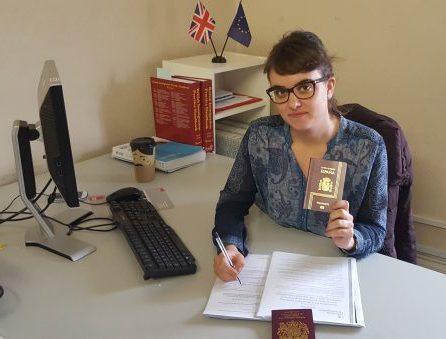Well, just because the government has its hands tied on matters of EU law, does not mean it will not try. This week has seen another government attempt to interfere with the EU Free Movement Rights by adding a layer of bureaucracy to EU nationals looking to become British citizens.
The Law as it has been
According to EU Law, EU citizens and their family members automatically acquire permanent residency once they have achieved the required 5 years residency requirements.
This in practice meant that an EU national who had been in the UK in accordance with the EU Treaty Rights could apply to naturalise to become British after six years in the UK; this is because he would be deemed to be a permanent resident after five years and the law requires them to have held permanent resident status for at least 12 months.
The Tweak – Law Change
From the 12th of November 2015, any EU national who wishes to apply for British citizenship will be required to apply for a permanent residence card, as introduced by the British Nationality (General) (Amendment No. 3) Regulation 2015.
This change in the law implies that EU citizens and their family members must apply for a Permanent Residence Card before making an application for British citizenship. This application – EEA (PR) Application for a document certifying permanent residence or permanent residence card under the EEA Regulations – has a total of 85 pages, with lots of confusing questions and a cost of £65.
Top Tip: while it would be best to use the application form recommended, the form is not mandatory provided that you pay the fee and provided all of the necessary information – Please consult your UK Immigration Solicitor if you don’t wish to use the form though.
According to EU Law, EU nationals and their family members acquire permanent residence automatically by operation of EU Law within the EU, without it being necessary to apply for a Permanent Residence Card.
Directive 2004/38/EC regulates the right of citizens of the EU and their family members to move and reside freely within the Member States of the EU. This directive gives EU citizens and their family members – spouse or registered partner; direct descendants under the age of 21; and dependent direct relatives in the ascending line – the right of permanent residence in the host Member State after a five-year period of uninterrupted legal residence, without any other condition.
Whereas not mandatory under EU Law, you can then apply for a permanent residence document, which confirms your rights to live in the country where you now live permanently, without any conditions.
However, with the changes introduced by the British Nationality (General) (Amendment No. 3) Regulation 2015, EU citizens and their family members are now mandated to first apply for a Permanent Residence Card before proceeding with an application for British citizenship.
Compatibility with EU Law
As a UK immigration lawyer dealing with several EU migrant cases I can not help but admire the craftiness of these new changes as the rules, as they manage to not directly affect the EU Law but only deal with the UK Law .i.e. EU Nationals by Law will continue to acquire permanent residence automatically, but if they want to become British then the cross over demands that they comply with the additional requirement of applying for a residence card.
Please feel free to share and comment to raie awareness of these issues. Also, if you have been affected by any of these immigration rule changes and need a quick chat with a UK Immigration Solicitor, do not hesitate to contact Tito Mbariti for a free one-off, no obligation general immigration advice consultation via either phone, facetime, Skype or Face to Face.
Tito Mbariti is a solicitor specialising in UK immigration, European Law and Human Rights law at Cross Border Legal Ltd in Leicester, he has been practising immigration law for several years with clients from various parts of the globe. He is a strong advocate of Human Rights for all, passionate about voicing important issues affecting migrants and their families in the UK. Tito is the founder and editor of Cross Border Legal, a UK Immigration and Human Right law blog.

